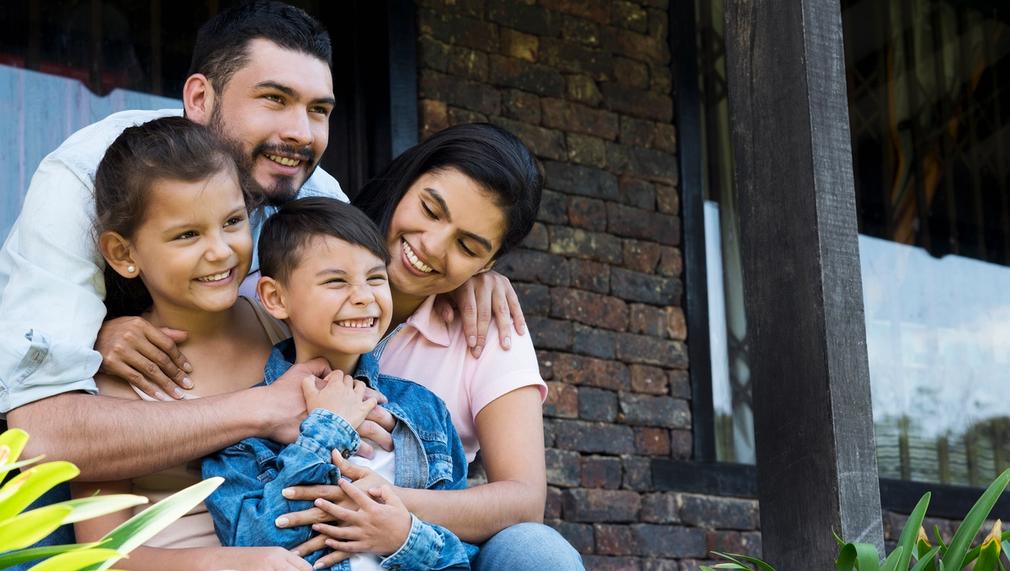Building Strong, Healthy Parent-child Relationships
Project will expand a successful pilot effort to create a countywide network of family coaches. Building Forever Families Initiative (BFFI) trains skilled graduates to become family coaches, working directly with DCFS and troubled families to help heal trauma and reunify families or place children in safe, stable healthy permanent homes. The program will usher in a new service model, addressing several LA2050 priorities: support for foster youth, income inequality, community safety, social support networks, and access to health and mental care.

What is the primary issue area that your application will impact?
Support for foster and systems-impacted youth
In what stage of innovation is this project, program, or initiative?
Expand existing project, program, or initiative (expanding and continuing ongoing, successful work)
What is your understanding of the issue that you are seeking to address?
Los Angeles County has the largest foster care population nationwide, and the child welfare system is overwhelmed. By age 5, the cumulative count of children reported to child welfare is more than 80,313, or roughly 1 in 7 children born statewide. This results too often in the loss of coordinated, consistent and intensive services for the vulnerable children and their families – shortcomings that can handicap children and families for the rest of their lives. Published literature and our own pilot experience in partnership with the County and researchers indicate that outcomes for foster children improve dramatically when we focus on healing trauma and facilitate family bonding by reunification of families or permanent placement when this is not possible. Maintaining a safe and healthy home environment requires services and resources to meet the families’ multiple needs. BFFI’s training academy focuses on addressing these needs effectively.
Describe the project, program, or initiative this grant will support to address the issue.
The program (piloted in two DCFS Regional offices) trains graduate students to serve as family coaches. They work with children and their bio-parents to maximize the benefits of supervised visitation, improve parents’ knowledge of healthy parenting practices, facilitate family bonding, improve utilization of needed community support and service networks, identify risk factors and help to build protective factors to prevent and intervene with abuse, neglect or maltreatment. More than 60% of our cases are survivors of domestic violence and coaches create pathways out of isolation to ensure they connect to needed care, services and resources. The coaches refocus County family service by alleviating the CSWs case-loads and having less reliance on the foster care system. Coaches work with families to reduce caregiver strain, improve family functioning, decrease behavioral or emotional problems, reduce risk of suicide, address substance use, reduce corrections involvement and homelessness.
Describe how Los Angeles County will be different if your work is successful.
BFFI is a pilot project and currently has MOUs with two out of the nineteen DCFS Regional offices. We have partnerships with five local universities for recruiting graduates. Success of this project will convert the County’s existing ineffective, traditional stand-alone family service models to a more interconnected, integrated delivery of care model. We will build on recent success, and documented results to create a more agile and responsive family care system that empowers children, builds parenting skills, and connects families to the services and support networks they need. Los Angeles County no longer will have the world’s largest population of foster children, both because fewer families will be separated, and because children involved in the foster system will be placed into a safe, stable, nurturing permanent setting more quickly. As the pilot project grows and becomes sustainable, BFFI can scale the program to serve other Regional offices in different Service Planning Areas.
What evidence do you have that this project, program, or initiative is or will be successful, and how will you define and measure success?
BFFI is an early-stage program but has obtained proof of concept. The program will increase the number of graduates from 7 to 15 to provide coaching services to more families. This will assist in the collection and assessment of reliable data. In collaboration with APU’s School of Behavioral Health and Applied Science, we developed qualitative and quantitative tools to evaluate the family coaching model to measure positive outcomes of the families. Under the supervision of the psychologists Ph.D., we assess the results of this project using a combined data collection method of questionnaire, observation, and documentation (case reports). Weekly supervised sessions help the coaches with feedback, quality monitoring and group discussions for improvement. We measure: -the number of families who reunify and/or are placed into permanent homes; - the pathways created to access services or resources; - coaching effectiveness in building positive, trusting, healthy relationship with families.
Approximately how many people will be impacted by this project, program, or initiative?
Direct Impact: 15.0
Indirect Impact: 200.0